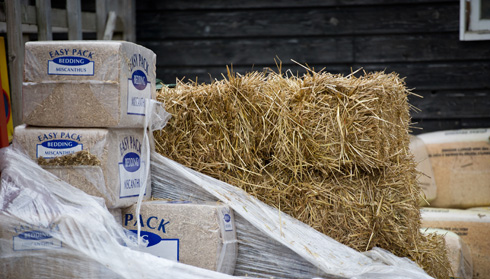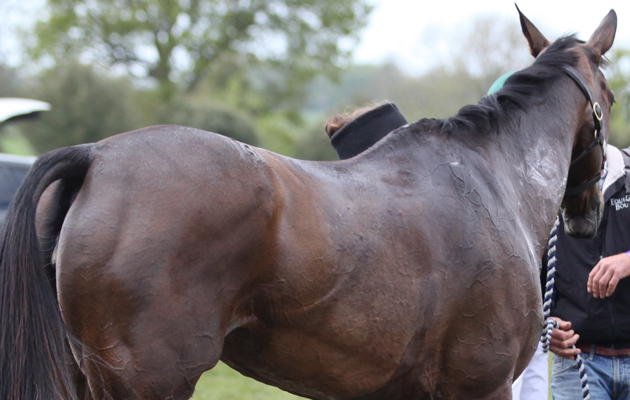Water troughs left in fields inevitably fill with algae and dirt, and cleaning is them one of those tedious tasks no one really likes. But what if there was a way to keep them clean without the elbow grease?
Searching internet forums intimates that there might be — keeping goldfish in the water trough. An article on the Horse Network states that the fish can live off algae growing on the sides and the bottom of the tank and will eat insects that fall into the tank.
Searching threads on forums reveals a range of opinions — as one expects from forums — and anecdotal evidence from some people saying it works and others saying it doesn’t, and back-and-forth internet debate over the veracity of these claims.
Looking for a more definitive answer, Horse & Hound approached Meredith Clawson of puregoldfish.com, the author of The Truth About Goldfish.
It turns out that the idea isn’t completely spurious, but it’s not as simple as throwing a few fish into the tank. Clawson explains: “It really depends on the kind of algae, as there are many varieties. Goldfish aren’t that great at eating most strains of algae to be honest, especially the kinds that are flat on the sides of the tank (i.e. brown algae, green spot algae), though if it’s hair algae — the stringy kind that can grow quite long — they will go nuts over this and keep it trimmed to about half an inch or less as they graze on it all day. So yes, if hair algae is your issue, they can help keep the trough clean by feeding on this.”
There are other issues as well. The fish themselves produce waste, and Clawson says: “Without filtration or live plants the water, this can cause issues like bacterial blooms (cloudy water). They also produce nitrates, and if you are feeding them commercial fish food, phosphates. Both of these nutrients are utilised in conjunction with sunlight to actually produce algae.”
In other words, if goldfish are swimming in unfiltered water, you will end up with more algae than you started with. It’s also unhealthy for the fish, eventually exposing them to high levels of ammonia. Clawson expounds: “Unless something is removing the pollutants the fish create as a result of feeding, the waste continues to build up over time until it reaches very toxic levels, causing chemical burns and caustic damage to the goldfish.”
Frequent water changes can keep toxins at bay, but if the water isn’t sufficiently aerated, either with plants or an airstone, the fish become anoxic. “Gulping at the surface,” Clawson explains, “Is a telltale sign the fish is struggling to breathe.”
However, if you want to keep goldfish in your water trough, it isn’t impossible and if done right, it can create very clean water and happy fish. But you need a whole ecosystem, not just a single species.
“Ideally you would have lots of live plants and snails,” Clawson says. “To deal with the organics produced by the fish. Plants themselves suck up nutrients from the fish waste that algae would use, so those also help in competitive exclusion. Goldfish eat many kinds of plants. Snails eat algae and break down organic waste. It all works together.”
She recommends Japanese trapdoor snails, which feed on algae and live in cold water, and Hornwort, a fast-growing, nutrient-loving plant, tough enough to survive the winter. Not only do the plants help filter the water, they provide the fish with other things they need, like shade if the trough gets direct sunlight.
So yes, the theory has elements of truth. It is feasible to provide horses and other livestock with clean water and not scrub the tanks yourself, but you have to essentially make your own pond, or as Clawson explains: “a balanced ecosystem [with] crystal clear water and a completely algae-free trough, with beautiful fish to boot.”
While this might appeal to some owners, others might find it easier to just clean the tank.
You might also be interested in:
Automatic waterers may save labour, but are they for the best? Kieran O’Brien MRCVS discusses the pros and cons

Choosing the right bedding for you and your horse

The pros and cons of automatic drinkers *H&H VIP*

Subscribe to Horse & Hound this spring for great savings
Horse & Hound magazine, out every Thursday, is packed with all the latest news and reports, as well as interviews, specials, nostalgia, vet and training advice. Find how you can enjoy the magazine delivered to your door every week, plus options to upgrade your subscription to access our online service that brings you breaking news and reports as well as other benefits.




